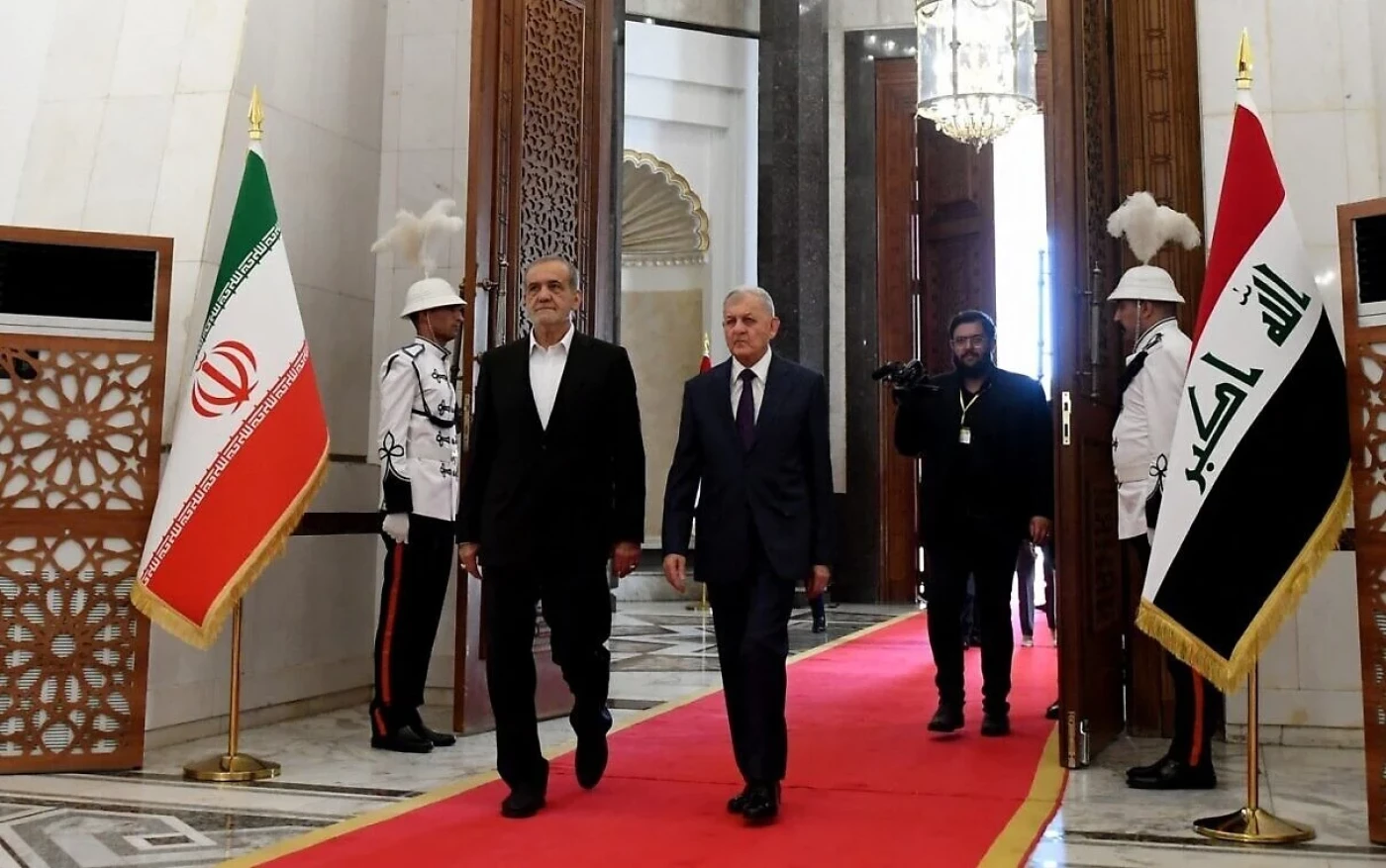ERBIL, Kurdistan Region of Iraq - Iraqi President Abdul Latif Rashid held a phone call with his Iranian counterpart Masoud Pezeshkian on Friday, discussing efforts to enhance bilateral ties between the two nations and regional stability.
Rashid and Pezeshkian underscored the need to strengthen “bilateral relations between the two neighboring countries and ways to develop cooperation in various areas of mutual interest, serving the interests of both people and enhancing security and stability in the region.”
The two presidents voiced the significance of maintaining cooperation across various sectors to "address challenges and enhance the foundations of development and stability,” which would contribute to "supporting political stability and reducing tensions in the region.”
Iran and Iraq are major allies and share extensive ties across all sectors.
Iraqi Prime Minister Mohammed Shia’ al-Sudani visited Tehran in early January, nearly a month after the ouster of Bashar al-Assad in Syria, who was strongly supported by both Tehran and Baghdad.
In September, Pezeshkian visited Baghdad on his first official foreign visit since taking office two months earlier, where he was received by both Sudani and Rashid, and met with top Kurdish authorities in the Kurdistan Region’s Erbil and Sulaimani.
The Iranian president’s visit saw the signing of 14 memoranda of understanding in various fields, which Sudani said “will represent a promising roadmap to enhance joint cooperations between the two countries.”
The two leaders’ phone call comes as the Islamic Republic and the US will hold a historical meeting on the earlier’s nuclear program in Oman on Saturday, after weeks of escalating rhetoric and US military posturing.
As tensions rise between the United States and Iran, Iraqi politicians and analysts warn of the potential economic, political, and security repercussions on Iraq. With Washington pushing to curb Tehran’s regional influence, concerns grow that Iraq could once again become a battleground for external conflicts.
Mukhtar al-Moussawi, a member of Iraq’s ruling Coordination Framework, said that any escalation between Washington and Tehran would have direct consequences for Iraq.
“There is no doubt that Iraq will be affected by any renewed tensions between Iran and the US,” Moussawi told The New Region. “This impact will be felt economically, politically, and in terms of security. Iraq has always sought to mediate and de-escalate tensions between the two sides.”
One of the immediate consequences, he warned, is Iraq’s ongoing electricity crisis. “With summer approaching, the loss of Iranian energy imports will have severe consequences for Iraqis,” he said. “If tensions continue to rise, security repercussions are inevitable, and Iraq will be the first to suffer.”
Al-Azm Alliance, a Sunni political coalition, cautioned against Iraq being drawn into a larger conflict between the US and Iran.
“A crisis anywhere in the region affects Iraq, as we have seen with events in Lebanon and Gaza,” said Azzam al-Hamdani, a senior leader in the coalition. “Any escalation between Iran and the US will have negative repercussions at all levels. The real fear is that Iraq could become the battleground for this conflict.”



 Facebook
Facebook
 LinkedIn
LinkedIn
 Telegram
Telegram
 X
X


